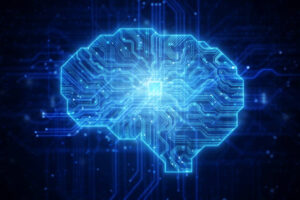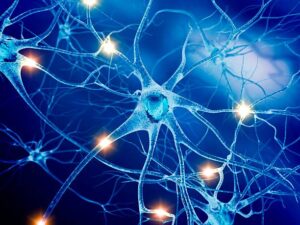In the 21st century, our world is increasingly intertwined with technology, and Artificial Intelligence (AI) and Machine Learning (ML) are at the forefront of this digital transformation. Beyond their role in reshaping industries, AI and ML are fundamentally altering our daily lives, including our psychology. This blog will delve into the fascinating and often subtle ways in which AI and ML impact our minds and behaviors on a daily basis.

Understanding AI and ML
Before we explore the psychological impact, it’s important to understand what AI and ML are.
- Artificial Intelligence (AI): AI refers to the development of computer systems that can perform tasks that typically require human intelligence. These tasks include problem-solving, learning from experience, understanding natural language, and recognizing patterns.
- Machine Learning (ML): ML is a subset of AI that focuses on developing algorithms and models that allow computers to learn from and make predictions or decisions based on data. ML algorithms can improve their performance over time without being explicitly programmed.
Artificial intelligence robot touching futuristic data screen.
Daily Human Psychology Transformed
- Personalization and AlgorithmsOne of the most noticeable ways AI and ML impact our daily lives is through personalization. The algorithms that power platforms like Netflix, YouTube, and Amazon use ML to analyze our behavior and preferences. This analysis enables them to recommend movies, videos, and products tailored to our tastes, ultimately influencing our choices and perception of the world.
- Emotional RecognitionEmotional recognition, a subset of AI, involves the analysis of facial expressions and voice tones to detect emotions. This technology has profound implications for our understanding and management of emotions. It is used in customer service, education, and mental health applications.
- Social Media InfluenceAI-driven content curation on social media can create “filter bubbles.” These bubbles expose us to content that aligns with our existing beliefs and interests, reinforcing our biases and potentially polarizing our perspectives.
- Chatbots and Virtual AssistantsConversational AI is becoming a daily part of our interactions. These chatbots and virtual assistants are changing how we communicate with technology and may have an impact on our language patterns and social behavior.
- Data Privacy and TrustWith AI collecting and processing massive amounts of data, concerns about data privacy and trust in AI systems are shaping our perceptions and behaviors.
Active nerve cells, computer artwork.
As AI and ML continue to evolve, it’s essential to navigate this changing landscape thoughtfully.
- Stay Informed: Continuous learning and staying informed about AI and ML developments, ethical considerations, and their implications are crucial.
- Digital Literacy: Develop digital literacy skills to critically evaluate information and algorithms. Being able to distinguish between trustworthy and unreliable sources of information is vital.
- Ethical Awareness: Advocate for ethical AI practices and transparency in algorithmic decision-making. Engaging in discussions about the ethical use of AI is important for shaping responsible AI development.
- Mindful Engagement: Be mindful of how technology affects your emotions and well-being. Consider incorporating mindfulness practices to maintain a healthy digital balance.
Abstract wire mesh humanoid robot and futuristic screen.
The Silent Revolution How AI & ML Are Shaping Daily Human Psychology
AI and ML are quietly revolutionizing our daily lives, including our psychology. As we navigate this transformation, understanding and active engagement are key. The resources provided in this blog offer valuable insights into the impact of AI and ML on our lives and minds, empowering us to make informed decisions in this ever-evolving digital landscape.
Join us on a journey into the intersection of technology and psychology, where everyday life is being redefined one algorithm at a time.



